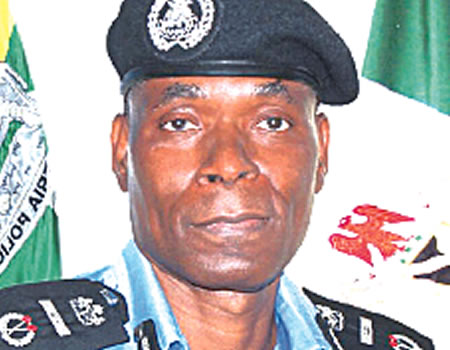THE formation of informal security network in Northern Nigeria dates back to several centuries. Most communities in the region and even beyond have formed their own internal security network that was used to regulate crimes in such communities.
For instance, in Kaduna there are several ones like Kato da Gora, Yan Banga, Jarumai da Gora, Civilian JTF, Cessufur, among others, whose formation were never recorded for the simple reason that they are not formal or created by law.
However, in 1999 activities of these security outfits became pronounced in most states in the region.
According to a social commentator, Nasir Mohammed; “we began to see how some politicians were using them to win elections in their respective domains. It was even gathered that in states like Zamfara, members of the vigilante groups were under the office of the Special Adviser on Security. And investigations revealed that members of the group receive monthly stipends to encourage them to remain in the loop. The then Governor Ahmed Sani went ahead to even give them patrol vehicles, motorcycles and bicycles, in order to enhance their operations.
In Kaduna, the general insecurity in the state, particularly with the introduction of Sharia, forced the then governor, Ahmed Makarfi, to engage members of the vigilante in providing adequate security in all the 23 local government areas of the state.
Findings by Sunday Tribune showed that uniforms were introduced as part of efforts to identify members of the vigilante group.
According to a member of the defunct vigilante group, Simeon Garba, there was nothing like formal recruitment, membership was voluntary. He also disclosed that the members were usually school dropouts, ex-service men and jobless youths.
As time went by, it was learnt, other groups like Kato da Gora, Civilian JTF and Cessufur came into being in order to meet the growing security challenges facing the region.
For instance, the resurgence of Boko Haram in the North-East saw the establishment of Civilian JTF who have complimented the military efforts in the fight against the insurgents in the zone.
However, it is important to note that these groups are community-based; their operations are mostly within such communities.
“Not only that, these local security outfits know every criminal living in every community. When a crime is committed, they can easily trace whoever is behind such crime and quickly make arrest,” Garba stressed.
However, a staff of the National Human Rights Commission (NHRC) who pleaded for anonymity told Sunday Tribune that the members of the vigilante are constantly at loggerheads with the authorities, because of the way they handled cases without recourse to respect for human rights.
“Since most of them are stark illiterates, without formal training, whenever a suspect is being apprehended, they use all sorts of weapon at their disposal without adhering to the rule of engagement acceptable internationally,” she said.
She added that more often than not, many of them are found guilty of human rights abuse and sometimes even murder.
“We have many cases were the vigilante members were found wanting and many of them have gone to prison. In fact, members of the vigilante have contributed a lot to the escalation of crisis between farmers and the herders,” she said.
According to her, quite often, they forcibly collected cows from Fulani herders in the name of stolen cows and at the end of the day, it turned out to be serious security issue.
Apart from that, a community leader, Ibrahim Abdullahi, alleged that most of the attacks in the rural areas were carried out by the vigilante members, in order to settle scores.
“Whenever that happens, the Fulani carry out reprisal attacks, thereby leading to the killings of several innocent people,” he said.
lt was also gathered that rich individuals and organisations also engage the local vigilante members to settle scores with perceived enemies.
According to a former commander of the vigilante who wouldn’t like to be mentioned, “it is true some of our members have gone beyond their limits. We are not entitled to punish offenders, but to arrest and hand over criminals to the police or other security operatives.”
He disclosed that many of their members operated like they are the police or law enforcement officers, saying, “we established our own cells and sometimes ask for bail. I sincerely do not think we have that power.”
It was based on the foregoing that Governor Nasir el-Rufai decided to establish the state Vigilante Service which bill was sent to the state House of Assembly and eventually became law since 2018.
Under the law, the Vigilante Service is the only acceptable local security outfit recognised in the state. The service is essentially aimed at regulating the different informal security outfits operating in the state. With the establishment of the service, all the existing local security outfits are now under one roof under the leadership of a commander.
Two years ago, when the Vigilante Service came into being, all other vigilante groups like Kato da Gora etc. became illegal. Under the new law, registration of members starts from the ward after endorsement from applicant’s traditional ruler.
Thus, former members of the outlawed vigilante groups who wish to join the newly established service are free to join, after completing the necessary registration process.
The governor had remarked during the official launch that his administration was ready to fight crime in the state, saying “the Vigilance Service has been established to help improve security in the neighbourhoods by putting more efforts to deter and respond to threats.”
According to him, the Vigilance Service will complement the existing security and law enforcement agencies which are all federal outfits.
The governor said officers of the state Vigilance Service will work closely with the Nigeria Police, the Civil Defence, the State Security Service and the military, particularly in areas of intelligence sharing.
“This government is committed to stopping the hoodlums and miscreants that menace our urban centres, and the bandits that threaten peace and harmony in our rural communities,” he had said.
WATCH TOP VIDEOS FROM NIGERIAN TRIBUNE TV
- Relationship Hangout: Public vs Private Proposals – Which Truly Wins in Love?
- “No” Is a Complete Sentence: Why You Should Stop Feeling Guilty
- Relationship Hangout: Friendship Talk 2025 – How to Be a Good Friend & Big Questions on Friendship
- Police Overpower Armed Robbers in Ibadan After Fierce Struggle






